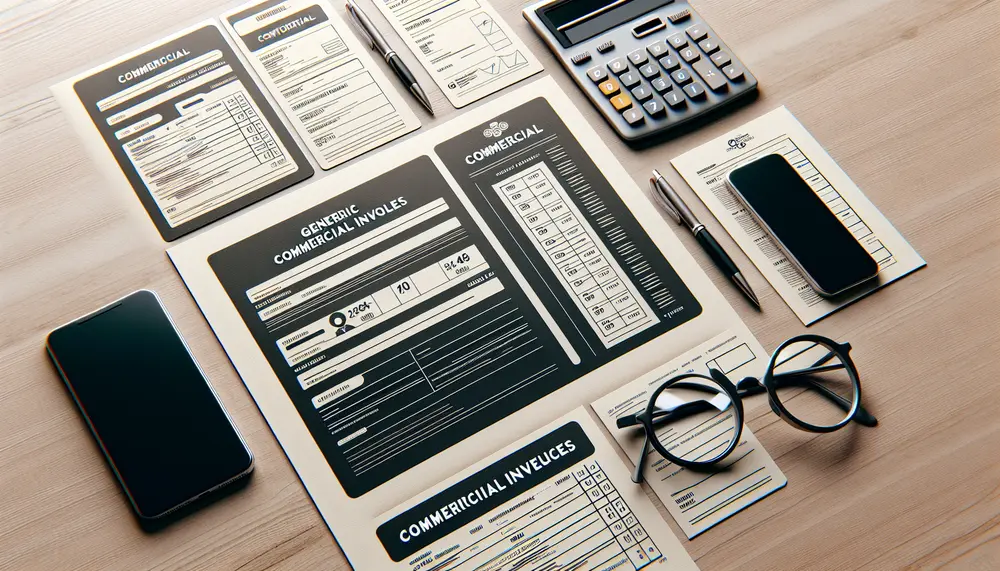Bankruptcy
Bankruptcy
Understanding Bankruptcy in Financial Factoring
Bankruptcy is a legal status of a person or other entity that cannot repay the debts they owe to creditors. In the world of financial factoring, understanding bankruptcy is crucial. Financial factoring involves a business selling its accounts receivable (invoices) at a discount to a third party, called a factor, to immediately receive cash.
Bankruptcy's Impact on Factoring Agreements
When a company enters into bankruptcy, factoring agreements are often carefully scrutinized. The factor must assess the risk of invoices not being paid due to the client's financial difficulties. A bankrupt customer may lead to a breach of the factoring agreement, where the factor could face significant losses.
Risks for Factors and How They Mitigate Them
Factors mitigate risks associated with bankruptcy through credit analysis, insurance, and due diligence. They often include clauses in contracts that protect their interests if the customer's financial state deteriorates unexpectedly. Understanding the warning signs of bankruptcy can also help factors decide whether to enter an agreement with a particular business.
The Role of Preference Periods in Bankruptcy
In bankruptcy proceedings, a preference period is a defined timeframe before declaring bankruptcy, when certain transactions can be voided to prevent preferential treatment of one creditor over others. Factors need to be aware of these rules as payments received during this period may have to be returned, affecting their cash flow and financial stability.
The Bankruptcy Process and Factoring Companies
If a client undergoes bankruptcy, the factoring company must navigate through the bankruptcy process, which involves the orderly distribution of the client's assets to creditors. The factor, being a creditor, must file a claim to potentially recover the money owed for purchased invoices. This process requires careful legal steps to ensure their claim is recognized.
Credit Protection Services in Bankruptcy Scenarios
Some factoring companies offer credit protection as part of their services, safeguarding against losses from a client's bankruptcy. This can be a critical service for businesses that want the liquidity benefits of factoring but are concerned about the financial health of their customers.
Conclusion: The Importance of Bankruptcy Knowledge
Bankruptcy is an essential concept in the context of financial factoring and can significantly affect the relationship between a business, its customers, and the factoring company. Both factoring entities and their clients benefit from a deeper understanding of bankruptcy to minimize risks and make informed decisions that affect cash flow and financial health.
Blog Posts with the term: Bankruptcy

Factoring law involves the sale of accounts receivable by a business to a factor for immediate cash, with legal terms like assignment and advance rate being key components. It requires careful consideration of jurisdictional laws, compliance with regulations such as...

Reverse factoring, also known as supply chain financing, is a financial strategy where banks pay company invoices to suppliers quickly for a discount, improving capital efficiency and strengthening buyer-supplier relationships. This method has seen significant growth due to factors like...

Factoring is a financial transaction where businesses sell their invoices to a factor for immediate cash, without incurring debt. It involves key players—the business selling the invoice, the factoring company (factor), and the debtor—and comes in two forms: recourse and...

Financial factoring is a transaction where businesses sell their accounts receivable to a third party at a discount for immediate cash, aiding in liquidity and managing cash flow. It involves an advance on the invoice amount from the factor who...

A factoring house, or factor, provides businesses with immediate capital by purchasing their accounts receivable at a discount. This service improves cash flow and allows companies to focus on core operations while the factor manages credit assessment and collections; there...

Reverse factoring, also known as supplier finance, helps companies manage payables and improve cash flow by having a financial institution pay suppliers' invoices early. Invoice discounting allows businesses to gain immediate cash by selling their outstanding invoices at a discount...

Export factoring without recourse is a financial service where exporters sell their invoices to a factor who assumes all credit risks, ensuring the exporter gets paid even if the overseas customer defaults. This arrangement boosts cash flow and reduces administrative...

In-house factoring is a financial strategy where companies manage their accounts receivable internally to improve cash flow, maintaining control over customer relationships and collections. It requires dedicated resources but can save on fees and enhance liquidity compared to traditional factoring...

Reverse factoring, also known as supply chain financing, is a financial arrangement where buyers approve and forward invoices to financiers who pay suppliers early, improving cash flow across the supply chain. However, it carries risks such as dependency on financier...

Factoring laws regulate the sale of invoice receivables from businesses to third-party factors, ensuring fair and transparent financial transactions with legal protections for all parties involved. These laws cover various aspects such as assignment of receivables, factor's rights, recourse terms,...

Invoice financing allows businesses to access immediate cash by leveraging unpaid invoices, focusing on customer creditworthiness rather than the business's financial standing. It enhances liquidity without increasing debt and is ideal for B2B or government clients with reliable payment practices,...

Factoring is a financial tool that allows businesses to sell their accounts receivable to improve cash flow, providing immediate funds and stabilizing operations. It involves verifying the creditworthiness of debtors, advancing a percentage of invoice values quickly, and charging fees...

Factoring financing recourse is a financial arrangement where businesses sell their accounts receivable to a factor but remain liable for unpaid invoices. It provides immediate cash flow and lower fees due to the business's retained risk, while non-recourse factoring transfers...

General Finance Factoring provides immediate cash flow by selling accounts receivable to a factoring company, allowing businesses to manage financial obligations and pursue growth without incurring debt. It offers benefits like improved liquidity, reduced administrative burden, credit management outsourcing, and...

Business factoring receivables involve selling outstanding invoices to a third party for immediate cash flow, helping companies manage expenses and invest in growth without waiting for customer payments. Different types of factoring—recourse, non-recourse, maturity, and spot—offer various risk levels and...